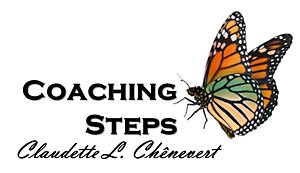How to Avoid Ex-Spouse’s Issues Becoming Remarriage Issue
You’re happily remarried—except you feel you’ve entered a bizarre love triangle: your spouse’s ex seems intent on destroying your happy union.
Remarriage is well-known for having its own special challenges. When you develop a relationship with someone who has formerly been married, that marriage represents a deeper bond than just someone your spouse dated. Extrication from the ex is difficult because first, finances and legal issues must be handled. And when there are children involved, extrication can’t be 100 percent.
Some ex-spouses have a hard time letting go, especially when they see their ex moving on and seemingly happy, and they themselves have not yet arrived at a happier phase in their life.
An ex-spouse’s frustration can come out in a variety of ways. If there was property held in common, this can be a source of contention and used as a battlefield. An ex-spouse may drag their feet on selling the property, which has implications on the finances of the newly remarried couple.
One of the most difficult areas, though, would be when children are pulled into the fray. There can be a tug-of-war between the ex-spouse and the new spouse, with the children the rope in the middle.
The result of an ex-spouse’s troublemaking, no matter what form it comes in, is that the newly remarried couple is focusing their attention on the wrong place: the ex-spouse. As a couple, you need time and attention given to your marriage—not constantly hashing it out over what the ex-spouse just did.
Let’s face it: this can put a serious damper on the joy and love that is rightfully your experience in your new marriage.
How should a remarried couple handle dealing with an ex-spouse bent on troublemaking? Here are 3 tips to help you get through:
Tip 1: Take a Different Viewpoint
It’s only natural to view any threat to your remarriage as the enemy, and that includes a troublesome ex-spouse.
The ex-spouse isn’t an enemy: they are a person who is struggling and hopefully, temporarily misguided. Their behavior, while troublesome, is evidence of their being emotionally troubled.
By looking at them in this light, it can lessen the amount of strain you are feeling. Also, if you have stepchildren, they no doubt sense the tension that’s there in their biological parents’ relationship, so your moderated feelings can provide a safe haven.
Tip 2: Appoint the Problem Manager
It’s natural for the remarried couple to want to join forces and treat this situation as “defeating a common enemy.” This is one time where the best way to work as a team is to work separate. If it’s your ex-spouse, then it is up to you to manage the issue. If it is your spouse’s ex, then they must manage the issue.
This helps get the confrontation out in the open and hopefully closer to resolution if the two most-involved parties are the ones going back and forth. Adding a person who wasn’t party to that marriage seems to only fuel the fire of contention, heightening already-heightened emotions of the ex. They may feel ganged up on, or get a little thrill at the thought of causing upset in their ex-spouse’s home.
Tip 3: Tend to Your Remarriage
When you are not knee-deep in the issues between your spouse and their ex, you are able to concentrate on doing those things that build your remarriage, such as planning for fun times together.
Having fun together as a remarried couple is more challenging when you are both in knots over the latest “antics” of a troubled ex-spouse. By keeping some distance from the fray, you can provide a sympathetic ear to your spouse while also focusing your attention on providing a positive home environment that promotes enforcing the bonds of your relationship.
And when it comes to hoping for some light at the end of this particular tunnel, remember the saying, “This too, shall pass.”



 This is not your mother’s second wedding! Getting married again? Wondering why the planning is harder than you thought it was going to be? Enter to win a copy of Eat, Drink and Remarry by Stacey Tucker!
This is not your mother’s second wedding! Getting married again? Wondering why the planning is harder than you thought it was going to be? Enter to win a copy of Eat, Drink and Remarry by Stacey Tucker!


Comments